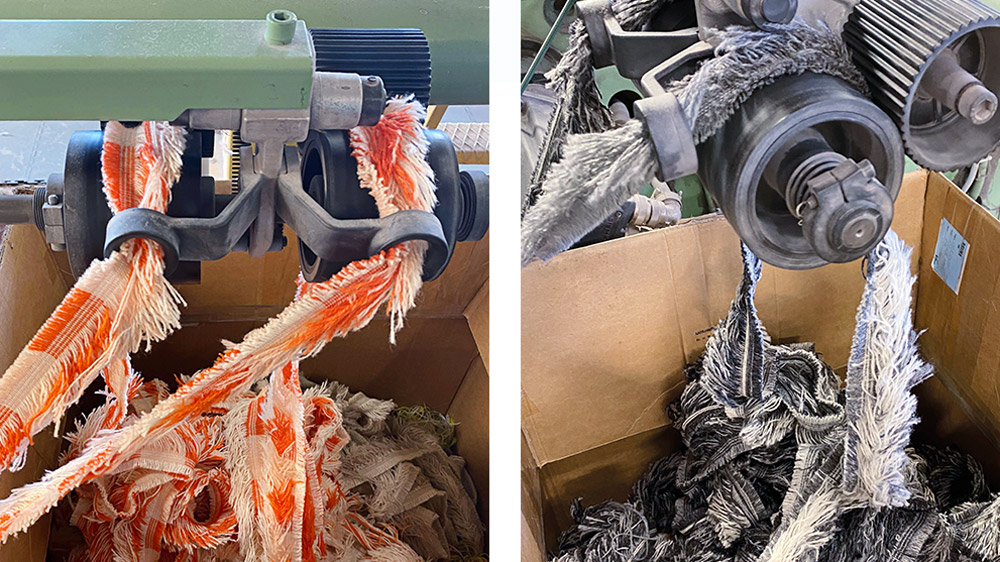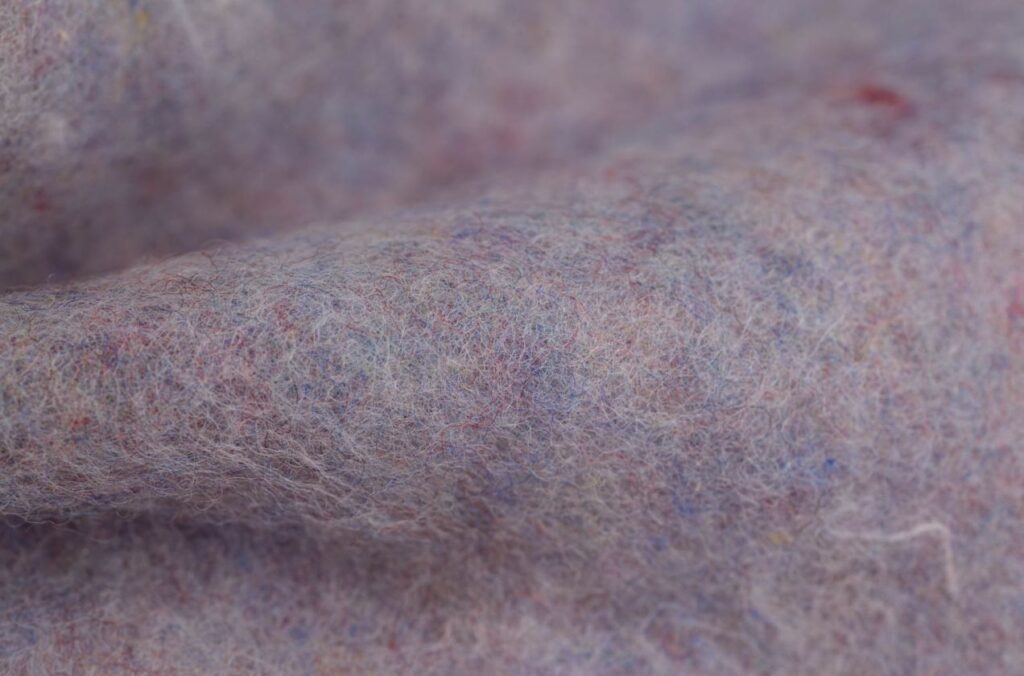“Old” wool, new mission: with “lavalan re,” Baur Vliesstoffe demonstrates how post-production wool waste can be transformed into sustainable, high-performance insulation that is functional, renewable and locally produced.
Function meets circular economy
Wool is one of the most versatile natural fibers in the world. It provides warmth, regulates temperature, is breathable and neutralizes odors. Since sheep need to be shorn regularly, wool is also a renewable resource. For many years, the Bavarian family-run company Baur Vliesstoffe has offered Lavalan as a natural alternative to synthetic insulation materials. This nonwoven insulation consists of European virgin wool and a plant-based PLA fiber for added stability. It is machine washable, biodegradable and impresses with its clever functionality in a wide range of weather conditions. With Lavalan Re, the company is now taking another step toward the principles of the circular economy, recycling and zero waste: The reliable Lavalan insulation is now also available with a proportion of recycled wool, offering even greater resource conservation and sustainability without compromising performance or quality.

Wool remnants from the Norwegian textile industry.
Added value through recycling
Rather than disposing wool remnants from European textile production, they are collected and processed for use as a valuable raw material. Lavalan Re consists of 30 percent recycled wool, combined with 50 percent new European virgin wool and 20 percent PLA. An additional advantage: Since the recycled wool has already been washed during initial processing, it is completely free of lanolin and dirt. This means that no additional washing is required, which saves both water and energy during the Lavalan Re production process.
Uncompromising performance
Despite its recycled content, Lavalan Re offers the same high level of functionality as classic Lavalan: providing reliable thermal performance, excellent breathability, temperature regulation and odor neutralization. This makes Lavalan Re an ideal alternative for a wide range of applications, including outdoor jackets, gloves, sleeping bags, home textiles and stroller equipment.

Lavalan re
Locally produced. Transparently traceable.
Like all Lavalan products, Lavalan Re is manufactured in Germany – at the company’s site in Dinkelsbühl, Bavaria. All wool is sourced from Europe and is mulesing-free. Instead of ending up as waste, wool remnants from the Norwegian textile industry are collected and processed by Sirkull AS, before being sent to the production site in Dinkelsbühl, where they are turned into Lavalan Re.
Systematic sustainability – right from the start
Both classic Lavalan and Lavalan Re stand for sustainable, high-performance insulation based on natural raw materials. They are produced in Germany with transparent sourcing and a clear commitment to responsible resource management.
“lavalan re” – key facts at a glance
- 100% natural and renewable raw materials:
- 30% recycled wool from the Norwegian textile industry
- 50% European virgin wool, mulesing-free and fully traceable
- 20% PLA – a bio-based fiber made from corn
- Made in Germany
- High breathability
- Odor neutralization
- “Temperature regulator” – keeps you warm in the cold and provides a cooling effect when it’s warm
- Machine-washable
- Zero-waste principle
Photos: Lavalan













Sorry, the comment form is closed at this time.